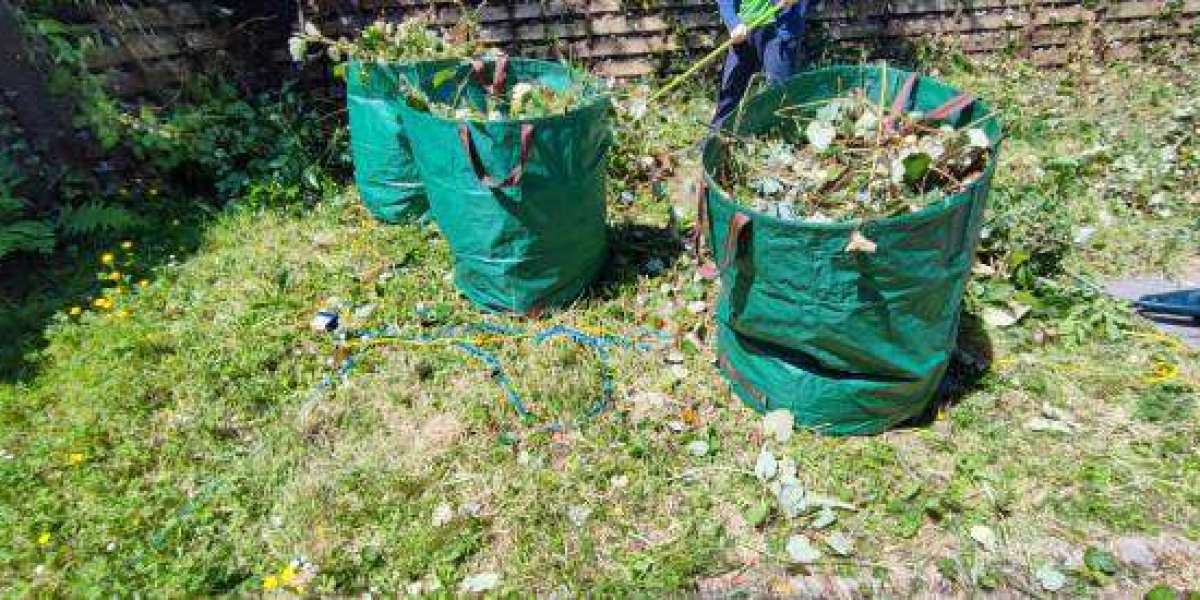As each season brings changes in foliage, flower blooms, and outdoor upkeep, it also adds to the inevitable buildup of yard waste. From fallen leaves in autumn to grass clippings in summer, managing seasonal yard waste is essential for a healthy, visually appealing yard. Efficient disposal and handling methods not only reduce clutter but also contribute positively to the environment. This guide explores some of the best ways to tackle seasonal yard waste with eco-friendly and effective solutions.
1. Composting: A Natural Recycling System
One of the most environmentally friendly ways to manage yard waste is by composting. Composting is a natural process that transforms organic materials, like grass clippings, leaves, and small branches, into nutrient-rich compost, ideal for enriching soil and aiding plant growth. Here’s how to efficiently compost yard waste:
- Choose a Suitable Location: Select a spot in your yard that’s easily accessible and well-drained. You can opt for a compost bin or create a designated compost pile.
- Layering Materials: Start by layering green materials (grass clippings and plant trimmings) with brown materials (leaves and small branches). Alternate these layers to encourage optimal decomposition.
- Turn and Monitor: Every few weeks, turn the pile to aerate and help the decomposition process. Make sure the compost is neither too wet nor too dry. In time, you’ll have rich compost for your garden, reducing your waste output and enhancing plant health.
2. Mulching: A Simple, Effective Use of Yard Debris
Mulching is a great way to repurpose yard waste, particularly leaves, grass clippings, and smaller branches. Mulch provides a natural layer that helps to retain soil moisture, suppress weeds, and protect plants during extreme temperatures. Here’s how to use seasonal yard waste for mulching:
- Shredding Leaves: Shredded leaves make an excellent mulch that can be spread around garden beds and under trees. They break down slowly, adding nutrients to the soil while reducing weed growth.
- Grass Clippings: Grass clippings are great for mulching garden beds as they decompose quickly, enriching the soil with nutrients. Avoid using clippings that are too wet or too thick, as they can mat down and create a barrier.
- Small Branches and Twigs: Use a chipper or shredder to break down branches and twigs into wood chips. Spread them around flower beds, trees, and pathways to provide insulation, improve water retention, and prevent erosion.
Mulching is a practical and eco-friendly option that recycles organic materials back into your landscape.
3. Yard Waste Pickup Services: Convenient and Time-Saving
Many municipalities offer yard waste pickup services during peak seasons, making it convenient to handle large amounts of organic debris. These services usually require residents to collect yard waste in biodegradable bags or special containers for curbside collection. Some key points to consider:
- Check Local Guidelines: Each municipality has specific rules on how yard waste should be packaged for pickup, such as using brown paper bags or yard waste bins. Confirm collection days and any seasonal schedules.
- Prepare Properly: Make sure to break down large branches and place them in appropriate containers to avoid overloading. This ensures efficient collection and processing.
- Consider Subscription Services: Some private waste management companies offer subscription-based yard waste pickup services that operate year-round or seasonally. This is ideal for homeowners with larger properties that accumulate yard waste regularly.
4. Creating a Designated Yard Waste Area
A designated area for yard waste can serve as a temporary holding spot for organic debris until you’re ready to dispose of or repurpose it. This is especially useful in managing seasonal surges in yard waste, such as autumn leaves or spring pruning clippings.
- Locate a Convenient Spot: Select a location in your yard that is out of the way yet accessible. This area should be level and, ideally, bordered to prevent the spread of materials.
- Separate by Type: Consider using sections for different types of waste, such as leaves, grass clippings, and branches. This can make it easier to sort when you’re ready to mulch, compost, or arrange for pickup.
- Plan for Seasonal Surges: Since yard waste can build up significantly during certain times of the year, having an area where it can be neatly contained ensures your yard remains tidy.
5. Reusing Yard Waste Creatively
Repurposing yard waste can be a cost-effective way to enhance your landscape. Here are a few ideas:
- Create Garden Pathways: Use wood chips from shredded branches to create natural walkways. They add a rustic charm to the garden and help control soil erosion.
- Construct Raised Garden Beds: Logs and larger branches can be used to frame raised garden beds. Not only do they serve as natural borders, but as they decompose, they also contribute nutrients to the soil.
- DIY Leaf Mold: Leaf mold, which is decomposed leaves, is an excellent soil conditioner. Collect leaves in a corner, keep them moist, and let them decompose over a year or two to produce rich leaf mold.
These simple projects provide a practical way to use yard waste while beautifying your landscape.
6. Burning Yard Waste (Where Permitted)
In areas where it’s permitted, burning yard waste can be a viable method for disposing of organic material, especially when dealing with large amounts of fallen leaves and branches. However, it’s essential to follow safety and regulatory guidelines to minimize environmental impact and fire hazards.
- Know Local Regulations: Check with your local municipality or fire department to determine if burning yard waste is permitted and if there are any seasonal restrictions or permits required.
- Practice Safe Burning: Always burn waste away from structures, trees, and other flammable materials. Have water or a fire extinguisher nearby to prevent the spread of flames.
- Avoid Burning Harmful Materials: Do not burn leaves treated with chemicals or non-organic waste like plastics, as this releases harmful toxins into the air.
Burning yard waste should be considered a last resort due to its environmental impact. Opt for composting, mulching, or pickup services if available.
7. Donating Yard Waste for Community Projects
Some communities have initiatives where yard waste, like mulch, branches, or leaves, is collected for local projects, such as park landscaping or community garden beds. Donating yard waste can be a great way to contribute to your community while managing your yard debris.
- Contact Local Organizations: Reach out to local parks departments, community gardens, or environmental nonprofits to see if they accept yard waste donations.
- Organize a Collection Day: If your neighborhood generates a large amount of seasonal yard waste, consider coordinating with neighbors to donate materials collectively.
- Participate in Community Clean-Up Days: Some municipalities organize seasonal clean-up days where residents can bring yard waste for proper disposal or community use.
This approach reduces waste while supporting local green initiatives.
8. Utilizing Professional Yard Waste Removal Services
For large properties or extensive yard work, professional yard waste removal services can be a practical choice. These companies offer labor and disposal, freeing up time and effort for homeowners.
- Select a Reputable Service: Look for companies with eco-friendly disposal practices, such as recycling or composting yard waste. Many services will also mulch or compost yard waste instead of sending it to landfills.
- Request Seasonal Packages: Some providers offer seasonal plans that coincide with peak yard waste times, such as fall leaf removal or spring pruning. This can be more economical than arranging for individual pickups.
- Check Additional Services: Many landscape and waste removal companies also provide additional services, like mulching or soil conditioning, allowing you to manage yard waste and enhance your yard in one service call.
Professional yard waste removal services are a hassle-free option, especially for those with extensive landscaping.
Conclusion
Seasonal yard waste management can be a straightforward, eco-friendly process when approached with the right strategies. Whether composting, mulching, or donating, efficient yard waste handling benefits both your landscape and the environment. By exploring options like professional pickup services, community donations, and creative reuse, you can keep your yard tidy and sustainable year-round.








